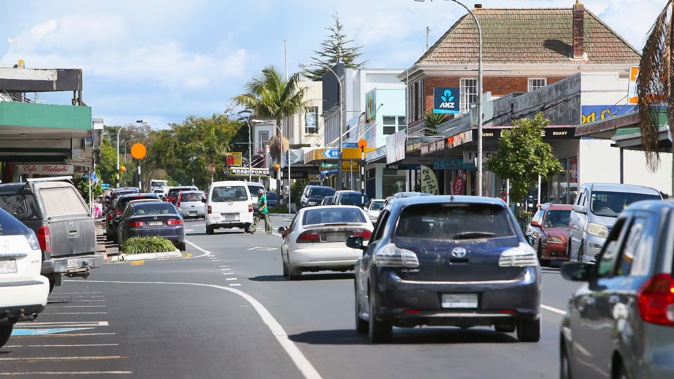
Police Minister Mark Mitchell is to meet a Northland iwi leader to discuss the calls for urgent help from the Government to squash the region’s methamphetamine crisis.
Ngāpuhi runanga chair Mane Tahere wrote to Mitchell, and several other Government ministers, recently after observing youth openly smoking a meth pipe in Kaikohe’s main street during the day.
He was horrified and saddened by the blatant drug use and highlighted his concerns in the letter to the ministers.
Tahere has called for urgent and enhanced support from the Government to address the worsening social and poverty crisis within Ngāpuhi. In light of recent national political challenges and cuts to funding and jobs, the focus has shifted from the critical issues affecting whānau right now, every day.
As the situation escalates, he says, immediate intervention by the Government is necessary.
Kaikohe locals believe methamphetamine use in their town has reached epidemic proportions, with the drug easily found on every street corner.
With a population of about 4500, the rural town is in the heart of Northland, which has the unenviable title of the meth capital of New Zealand. Most recent wastewater testing done for police shows nearly 2000mg of meth per day is consumed per 1000 Northlanders.
Some groups in the town, such as the Kaikohe-based Whakaoranga Whānau Recovery Hub, Te Ara Oranga and the Salvation Army Bridge programme are trying to help, but government intervention is wanted, including more police on duty.
Ngāpuhi leader Mane Tahere looks forward to meeting Police Minister Mark Mitchell after calling for urgent help from the Government to address Northland’s methamphetamine crisis.
In response, Mitchell acknowledged the concerns raised directly to him by Ngāpuhi.
“I also acknowledge the role our local community leaders and iwi play, alongside police, to address these issues. I welcome the opportunity to discuss [them] in person.”
Tahere said he too was looking forward to sitting down with Mitchell to find out what he and the Government could do to support the iwi in its battle to beat the meth crisis and other social issues in the region.
“I welcome that meeting. I’m interested in what they can do to work with us to find a solution and I also want to point out the urgency of this. We want to work together to overcome this crisis that is hurting so many people.”
Tahere said he heard people complain that Ngāpuhi had already received government funding, but he points out that was as part of its fisheries settlement and was for specific purposes.
He also wanted to point out to people that Ngāpuhi had yet to settle its Treaty of Waitangi claim and it was the only large iwi yet to do that, so it did not have the large financial reserves of some other large iwi.
The Runanga was still waiting to see if two of its subsidiaries - Ngāpuhi Iwi Social Services and Te Hau Ora o Ngāpuhi - had been successful in applications for money to put towards solutions.
“But it’s also worth pointing out, and we have the data to support this, that Ngāpuhi pays about $1.2 billion a year in taxes from our 184,000 Ngāpuhi members. That’s money directly into Government coffers,” he claimed.
“There are also about 15,000 children in Oranga Tamariki care who whakapapa back to Ngāpuhi. We should really be getting $150m of that annual Oranga Tamariki budget for our children in their care to look after them. We really get 0.01% of that.”
Tahere said Ngāpuhi had to work with the Government and others to solve the issues as it could not do so by itself.
“The crisis within Te Whare Tapu o Ngāpuhi is worsening, with rising violent crime, family harm, and the devastating impact of methamphetamine use.
“In the past few weeks alone, we have seen three homicides and countless incidents involving drugs, highlighting the severity of the situation.”
Tahere said the lack of housing, jobs, and essential services is further compounding the crisis in the region.
He specifically called out the inadequate policing in the area, citing the recent homicide of a Ngāpuhi uri at Mangakahia Kaikohe, where police were alerted to escalating violence beforehand but were unable to intervene in time.
“With only six officers on duty at any given time to cover vast areas like Kerikeri, Paihia, Kawakawa, Kaikohe and Hokianga, the safety of our people is at risk. We demand accountability from the Police Commissioner and minister.”
Tahere said the meth crisis in Ngāpuhi has reached alarming levels, with Kaikohe recently identified as the “meth capital” of Aotearoa.
Take your Radio, Podcasts and Music with you









